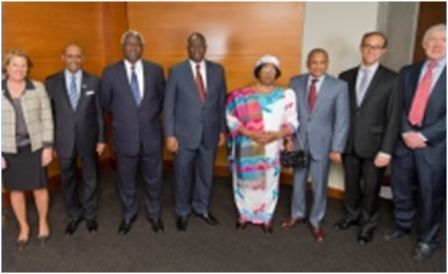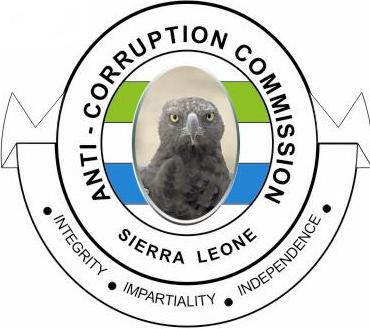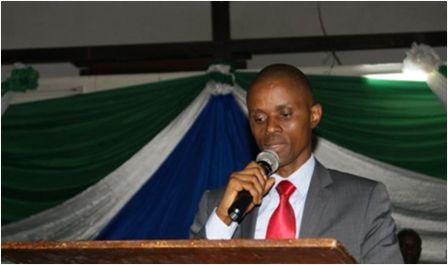Standing up to corruption: Lessons from Sierra Leone
Last week’s visit to Washington, D.C. by the leaders of Sierra Leone, Senegal, Malawi, and Cape Verde provided another opportunity for MCC to engage these partner countries and host a panel discussion with other U.S. Government agencies on furthering economic growth. As the dialogue focused on the ingredients for such growth, the need to identify and mitigate corruption was raised as essential for attracting private sector investors and creating a sustainable investment climate. These four leaders demonstrate a commitment to combating corruption, and their respective countries each pass the control of corruption policy indicator on MCC’s scorecard. My recent experience in Sierra Leone provided some insight into how the issue is being addressed on the ground. (Photo: l to r OPIC President and CEO Littlefield, MCC CEO Yohannes, President Koroma of Sierra Leone, President Sall of Senegal, President Banda of Malawi, Prime Minister Neves of Cape Verde, Acting USTR Marantis, and Under Secretary Hormats meet at MCC. )
During an initial visit to Sierra Leone this past February after our Board of Directors selected the country as eligible to develop a compact; I met with Morlai Buya-Kamara, the deputy commissioner of the Anti-Corruption Commission (ACC). We discussed the ACC’s approach to attacking corruption, which includes a mix of education, systems of prevention, investigations, and prosecutions. Deputy Commissioner Kamara shared that the recent strengthening of the Anti-Corruption Act to give the ACC the power to prosecute cases has been a significant step forward in removing corruption probes from the political process. And that step appears to be paying important dividends, given the ACC’s increased caseload and recent prosecutions of government officials.
In fact, the ACC recently indicted 29 state employees for corruption linked to the misuse of funds from a Gates Foundation-backed vaccine provider. The country’s top health official was among those prosecuted. Overall in 2012, the ACC recovered $4.2 million and had 22 major convictions, double the number of prosecutions in 2011.
Such progress does not happen in a vacuum: It requires a commitment to policy reform at the highest levels of government. Such political support from the top extends out to ministries that are implementing integrity programs, civil society groups that are becoming assertive watchdogs and Sierra Leoneans who demand a society free from graft and bribery. And such progress also comes at a cost: As the ACC succeeds, there is greater demand for its engagement that requires additional budget resources to sustain its effectiveness.
While fighting corruption does not have the breathtaking visual impact of the major MCC-funded infrastructure projects that I’ve seen in such places as Mali, Burkina Faso or El Salvador, it can help to create an environment for promoting healthy democratic and economic governance, which can have equally breathtaking effects. My hope is that Sierra Leone’s momentum in the fight against corruption will continue and that MCC’s engagement will leverage further progress.
Cassandra Butts, Senior Advisor, MCC
Stay with Sierra Express Media, for your trusted place in news!
© 2013, https:. All rights reserved.






